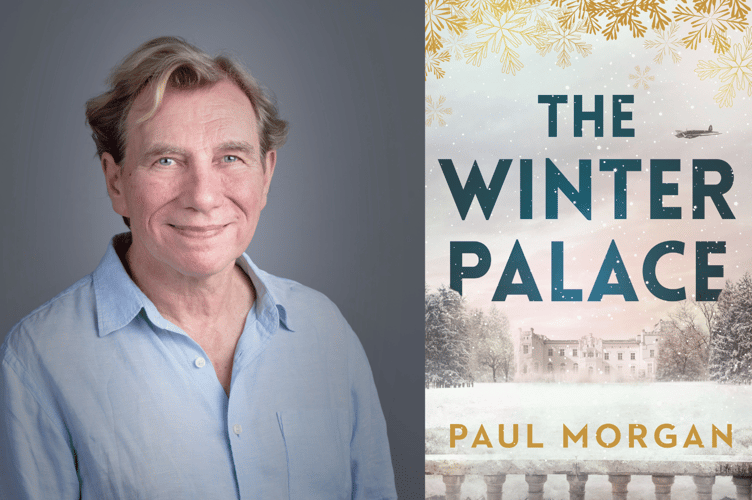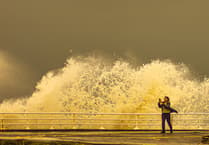This week First Person tells the story of novelist Paul Morgan.
Now based in Australia, Paul’s third novel, ‘The Winter Palace’, has just been published by Penguin.
Raised in Llandre, Paul went to Ardwyn Grammar School, Aberystwyth, studied at Lampeter University and worked as the Rare Books Librarian at the National Library, “yn siarad Cymraeg, wrth cwrs”.
“After emigrating I get back to Wales every summer to see family, staying in Llanbadarn,” said Paul.
Paul’s previous novels, ‘The Pelagius Book’ and ‘Turner’s Paintbox’ were also published by Penguin.
Born in London and educated at the University of Wales where he studied Philosophy and English, Paul lives in Melbourne.
As well as novels, he has published short stories and anthologies including ‘New Australian Stories’. He is also a regular contributor to the Australian Book Review.
The Polish ‘abduction’ of 1939 tearing families and lovers apart, and the tragic way that war still rages and people are still torn from loved ones all over the world inspired Paul’s latest novel.
Paul Morgan has reimagined the events of 1939 through the heart-rending story of a couple pulled apart by Nazi Germany’s regime.
In September 1939, Nazi Germany joined forces with the Soviet Union and invaded Poland, marking the start of the Second World War and culminating in the capture of Polish soldiers, and over a million civilians abducted and forced into slavery.

As months turned to years, many Polish soldiers and civilians wandered through Soviet Asia as part of a lost army, eventually arriving in the safety of Palestine.
Many found a home in Australia after the war.
Anton, a captain in the Polish army, leaves his wife, Elisabeth, riding into the unpredictable throes of war to defend his homeland.
They vow that whatever happens, however much time passes – they’ll meet again at theWinter Palace, their stately home in the Polish countryside. Both are quickly confronted with the brutal reality of their enemy’s aggression.
Anton is captured and sent to Siberia as a POW before battling through snowstorms and scorching deserts to freedom. Elisabeth is forced into becoming the ‘mistress’ of a Nazi officer before narrowly escaping the life of an army prostitute to join the Polish resistance.
Their survival is driven by a fierce determination to see each other again.
To feature in First Person email [email protected]
.png?width=209&height=140&crop=209:145,smart&quality=75)



Comments
This article has no comments yet. Be the first to leave a comment.